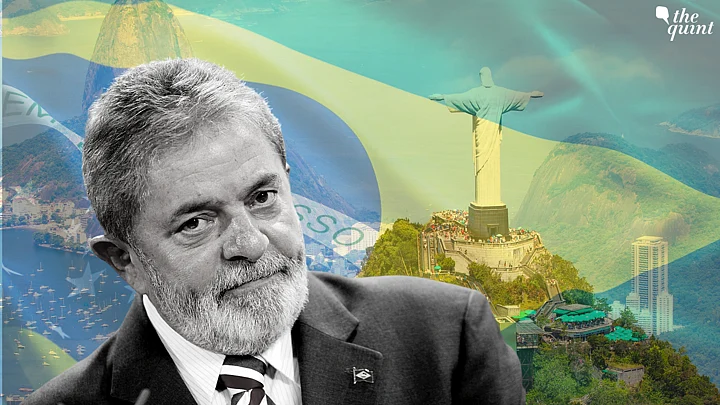Veteran leftist and former President of Brazil Luiz Inácio Lula da Silva defeated far-right incumbent Jair Bolsonaro in a stunning comeback on Sunday, 30 October, after a polarising run-off election. Lula da Silva’s victory marks the end of one of Brazil’s most far-right governments.
He secured 50.8 percent of the vote while Bolsonaro secured 49.2 percent, with 99.1 percent voting machines counted, which the Supreme Electoral Court said was enough to “mathematically define” the race’s outcome.
Lula called for “peace and unity,” saying that Brazil was no more an international pariah and highlighted the need for a “living Amazon.”
He also reached out to supporters and rivals during his speech and highlighted the need for a “Brazil of peace, democracy, and opportunity.”
Jair Bolsonaro had been leading during the first half of the vote count. As soon as Lula took the lead, Sao Paulo’s city centre filled with the sound of cars blaring their horns. People in some Rio de Janeiro neighborhoods shouted, “It turned!”
Lula fought his first election in 1989, after Brazil shed its authoritarian past and officially became a democracy, and lost. He also lost two more elections in the 1990s, but finally became president in 2003 and held the post for seven years.
He is credited with lifting a large number of people out of poverty with his welfare socialism policies and focus on higher education.
The Run-Off
The presidential race in Brazil went to a second round after Lula da Silva failed to secure an overall majority during the first vote on 2 October.
After more than 99.5 percent of votes were counted, the left veteran da Silva secured 48.3 percent of the vote, while his rival Bolsonaro significantly outperformed poll predictions and received 43.3 percent of the vote.
To win the presidential race in the first round, da Silva or Bolsonaro had to receive more than 50 percent of the vote. As neither were able to achieve that, they had to dig in for a four-week sprint to the final run-off vote, which took place on Sunday, 30 October.
Pre-election polls had put da Silva within touching distance of the presidential office during the first round itself, predicting more than half of the votes in his tally. However, he fell short, leading to a run-off vote.
Who Is Lula Da Silva?
Lula had been banking on his experience, and highlighted the deficiencies of the Bolsonaro regime, especially the latter's handling of the COVID pandemic, which killed around 7 lakh people in the country, the economic downturn, and policies that triggered massive environmental degradation.
Lula's socialist roots extend to his humble beginnings, which forced him to quit schooling in the fourth grade and help his family financially. At the age of 14, he secured a formal job as a metal worker in a copper-processing factory.
He became a prominent face in the 1970s as a union leader, at a time when Brazil was seeing a swing towards the left, with labourers demanding higher wages and better working standards. Lula also helped organise strikes during this period, which were considered to be illegal by the then military rulers in the country.
In 1980, several union leaders, including Lula, academics, and intellectuals formed the Workers' Party to challenge the military establishment.
Amid widespread protests, Brazil shed its authoritarian past and officially became a democracy in 1989, which was also the year in which its first general election was held. Lula fought the election and lost.
He also lost two more elections in the 1990s, but finally became president in 2003 and held the post for seven years.
During his tenure, he spent a great deal of attention on welfare socialism and higher education, thus lifting a large number of people out of poverty.
His policies were also responsible for Brazil coming out of the cage of being a massive debtor among developing countries and becoming a creditor for the first time in 2008.
However, in 2017, Lula was sentenced to nine years in prison on charges of corruption and money laundering, which marred his image considerably.
Four years later, however, the country's Supreme Court annulled all the allegations against him. However, by then, the damage was already done to a great extent.
In fact, it was Lula's conviction that catapulted Bolsonaro to power in the 2018 polls.
